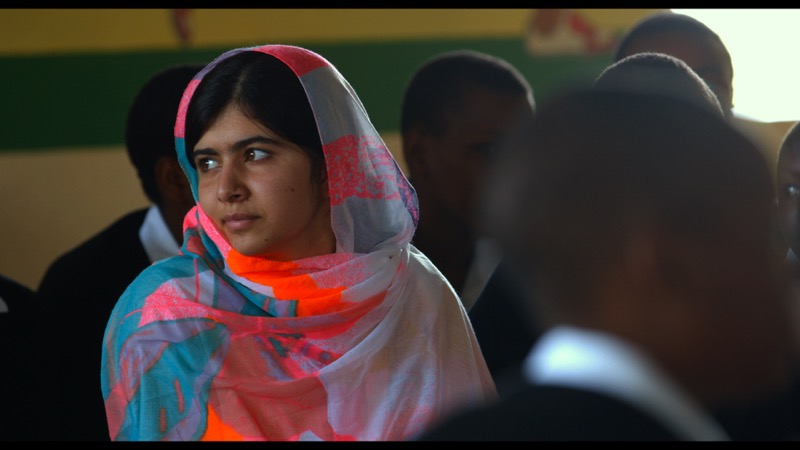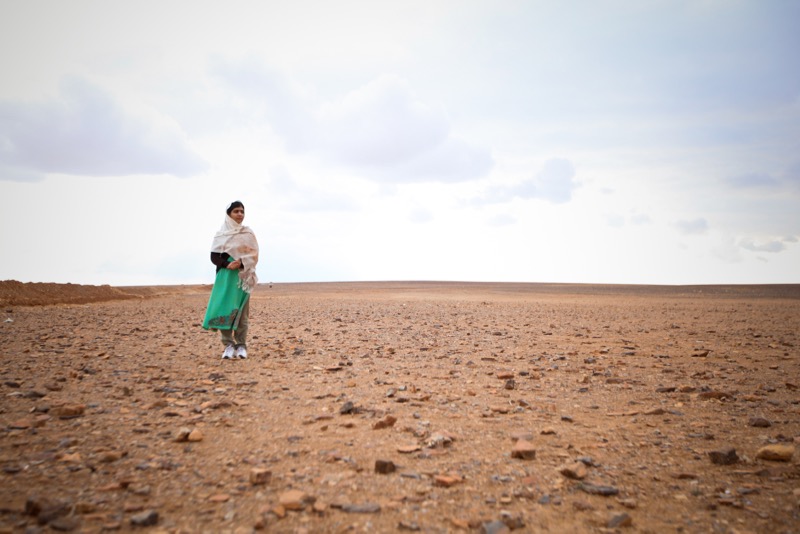
By Dawn Watson
Malala Yousafzai is no average teenager. After standing up for girls’ rights to education in her home country of Pakistan, she was targeted by the Taliban, shot in the head and left for dead at the tender age of 15.
[caption id="attachment_44438" align="alignleft" width="300"] prodshots-16 copy.jpg[/caption]
prodshots-16 copy.jpg[/caption]
Despite being the victim of a violent crime, Ms. Yousafzai’s hopeful outlook, forgiveness toward those who have wronged her and continued advocacy for human rights earned the outspoken teenager the 2014 Nobel Peace Prize. The youngest recipient of the award, her story has captured the hearts of millions and drawn continued interest to the plight of Pakistani girls and women under Taliban rule.
Named for a famous Pashtun poetess and warrior woman, Ms. Yousafzai was no stranger to controversy when she was gunned down by the Taliban in the Swat Valley of Pakistan in 2012. The activist, now 18, first began sharing her views with the world when she was just 11 years old in a blog that she wrote for the BBC Urdu website, starting in January 2009.
The posts, which ran for just over a year, were anonymous during the time she wrote them, but eventually her identity became known. By then, a year and a half later, she had already been speaking out publically, giving interviews for newspapers and on television and allowing herself to be filmed for a documentary movie.
In December 2011, Ms. Yousafzai was awarded Pakistan’s first National Youth Peace Prize. Ten months later, on October 9, 2012, she was shot by a masked gunman while riding the bus home from school after exams. A year later, her memoir, “I Am Malala: The Story of the Girl Who Stood Up for Education and was Shot by the Taliban,” co-written with British journalist Christina Lamb, was published.
“There’s a moment when you have to choose whether to be silent or to stand up,” Ms. Yousafzai says in a new documentary about her life, “He Named Me Malala” by filmmaker Davis Guggenheim. “I want people to learn from the experience I had.”
The Academy Award-winning director of the film, whose credits include “An Inconvenient Truth,” “Waiting for Superman” and “It Might Get Loud,” followed Ms. Yousafzai and her family from May 2013 through early 2015. During that time, the young activist saw her book, which has been compared to “The Diary of Anne Frank,” get published, translated into myriad languages and banned in her home country; received numerous awards, from the Nobel Peace Prize to Glamour magazine’s “Woman of the Year;” addressed the United Nations, met privately with President Barack Obama and his family; and even won a Grammy Award for Best Children’s Album.
Being able to witness first-hand so many of Ms. Yousafzai’s triumphs, as well as her regular everyday life, has not just made for a good story, it’s also been a moving experience for the filmmaker.
“She’s just a regular girl who likes Brad Pitt and arm wrestling with her brothers, but she’s also got this poise about her that everyone talks about when they meet her. When she speaks, you hang on every word,” he says of his subject. “It's unusual to see someone this age who is so eloquent and articulate and has so much to say.”
Seeing her incredible life unfold over the past two years has had a profound impact on him, adds Mr. Guggenheim.
“She doesn't live in fear and she doesn't live in bitterness,” he says. “She's been given this new life and she lives itto the fullest.”
A powerful communicator and firebrand for change, as a result of her efforts Ms. Yousafzai has had many extraordinary experiences in her young life, including being invited to celebrate “Malala Day” at the United Nations on her 16th birthday on July 12, 2013, and seeing the creation of the Malala Fund, which works to ensure that all girls have access to a quality secondary education. But despite all the fanfare, she’s remained humble.
“I am those 66 million girls who are deprived of education. I am not a lone voice. I am many,” she says in the film.
Spending time with the Yousafzai family has done more than shed light important human rights topics, says Mr. Guggenheim. Being allowed to tell their story has proved quite gratifying in a number of ways.
“My world is broader because of it,” he says.
But more importantly, the father of three hopes that by learning about Ms. Yousafzai, his ultimate audience—other young girls—will be empowered.
“It’s about the power of words, and the act of speaking out,” he says of Malala’s personal mission. “My hope is that girls everywhere feel that this is their movie. That it speaks to them. I dream that girls will take their parents to this movie, instead of the other way around. Because, this is their story.”
“He Named Me Malala will screen on Friday, October 9, at 11:45 a.m. and on Sunday, October 11, at 3:30 p.m. at the Regal East Hampton Cinema UA on Main Street in East Hampton. Tickets are $15. Visit hamptonsfilmfest.org.